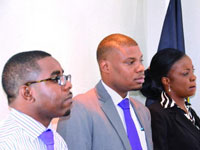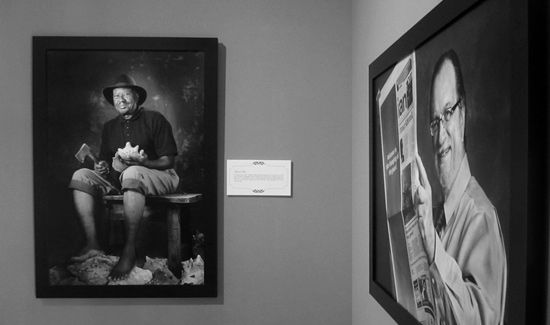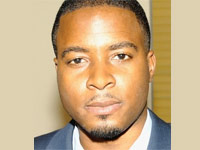 Members of the Haitian-Bahamian community encouraged the government to take a firm stance on the regularization of children born in The Bahamas to non-Bahamian parents.
Members of the Haitian-Bahamian community encouraged the government to take a firm stance on the regularization of children born in The Bahamas to non-Bahamian parents.
Luvy Jean, founder of Univision, a community-based service organization, said the constitution should be amended to remove what he called gray areas regarding those eligible for automatic citizenship.
Jean made the recommendation to the Constitutional Commission yesterday.
“Reduce and remove politics associated with citizenship,” Jean said. “Children born in The Bahamas to legal foreign parents while living in The Bahamas should be Bahamian citizens.
“An example is, if a child is born to two legal teachers, two foreign teachers from Guyana, and they were to have a child in The Bahamas, that child should be a Bahamian at birth.”
Children born in The Bahamas do not automatically become citizens, but the constitution provides that children born in The Bahamas to non-Bahamians can apply for citizenship on their 18th birthday or within the following 12 months.
Those children can receive a public school education and healthcare, but Vice-President of Univision Jeannette Jean said those children, who can be denied citizenship, are barred from contributing to society.
A child born to a foreign woman and a Bahamian man automatically receives citizenship at birth regardless of the place of birth.
The same cannot be said for children born to a Bahamian woman and a foreign man, where the child takes on the father’s citizenship.
“Foreigners…when they come to The Bahamas, they have children,” she said. “The Bahamas educated these children, they send them to the public schools likewise.
They give them public healthcare and after investing for so long it is only fair that The Bahamas should get a return.
“And it is only fair for these children to give back to the community, but like I mentioned before, because of the present laws it is difficult for The Bahamas to get as much in return from these individuals.”
According to the 2010 census, of the 351,000 people living in The Bahamas, 40,000 were Haitian, making up more than 60 percent of foreigners living in the country.
Jean suggested the government set a date, and after that period children born in The Bahamas to non-Bahamian parents should assume the nationality of their parents and be deported to their country of origin.
“I think it is only fair because of the present law that we have. We already have children born in The Bahamas,” she said.
She noted the regularization process typically takes between two and six years meaning citizenship may be granted when a person reaches age 24.
According to data in the birth report collated from 1970 to 2010, while births among most foreign women have dropped in the past four decades, from around 30 percent in 1970 to about 18 percent in 2010, the birth rate among Haitian women in The Bahamas has nearly doubled during that period.
Jean said Haitians living in the country face a unique plight. She argued although they make up the majority of foreigners in The Bahamas, because of challenges in gaining citizenship and ongoing discrimination, there are generations of stateless individuals.
Jean said those people do not feel a part of Bahamian society nor do they feel welcome although they were born in this country.
The commission’s report is expected to be presented to government in June.
By Royston Jones, Jr.
Guardian Staff Reporter


